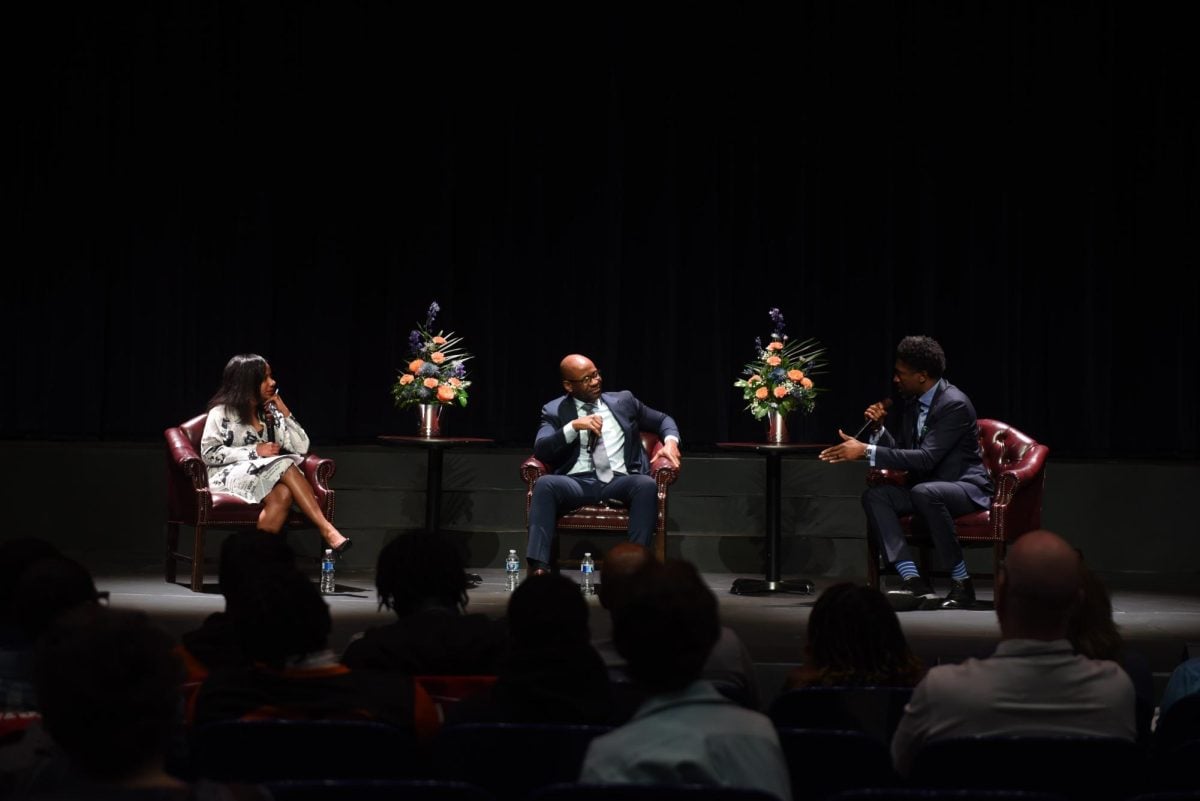About 100 Evanston-area residents attended a panel titled “The Civil Rights Act at 60: Is Martin Luther King, Jr.’s Dream for Chicago and the Country Attainable?” at Evanston Township High School Monday night.
The panel — which was presented by the Family Action Network and the Stanford Institute for Advancing Just Societies — featured Vaughn Bryant, executive director of Metropolitan Peace Initiatives, and Lerone Martin, director of the Martin Luther King, Jr. Research and Education Institute at Stanford University. The event was moderated by journalist and author Natalie Moore.
The talk focused on King’s legacy and the importance of organizing in local communities today. Topics discussed included segregation, redlining and redistribution of wealth.
Martin said people commonly misunderstand King as only being concerned with ending Jim Crow laws when, in actuality, King was interested in eradicating the “triple evils” of racism, poverty and military violence.
“His body of work is so large and encompasses concerns about poverty, economic exploitation, housing, war and police brutality,” Martin said. “What we have in this country, unfortunately, is that King has been anesthetized, or he’s been sanitized, in order to be acceptable to the broader public and to the broader nation.”
In Chicago, King worked against redlining by trying to find places where Black Americans wanted and could afford to live, Martin said.
Martin said King would test for fair housing by sending white and Black people looking to buy homes to the same local real estate agencies. He found that prospective white homeowners were offered housing all across the city, while prospective Black homeowners were only offered housing in the west and south sides of Chicago, Martin said.
“(King) came up to Chicago and gave a speech in 1963 and said Chicago is as segregated as Farmingdale,” Martin said. “We see the photos and the images of a Birmingham march — children being sprayed with hoses and dogs being bitten. You didn’t see that necessarily within Chicago, but it was still segregated in part because of federal housing policy.”
Martin said that King would spend time in Black neighborhoods as a way to speak with the community. King focused on engaging with people in conversation, particularly young people because they “have opportunity and responsibility to try to create a better world,” Martin said.
Bryant said reaching out to communities and listening to what they have to say is the pinnacle of organizing — even to this day. Lobbying is an important way for people to advocate for what they want and need, he added.
“It is making sure that the people who are closest to the problem in their local community are coming up with the solutions,” Bryant said.
Martin said one such problem in need of a solution is wealth inequality — specifically, how racialized the issue is.
Evanston resident JoAnn Robson, who attended the panel, said she appreciated the speakers highlighting how far society has come for general racial equality, yet there is a saddening lack of progress in closing the wealth distribution gap.
However, Robson said she remains hopeful that future progress is on its way.
“I have faith in the young people of today,” Robson said. “I think you’re going to help make the world a better place.”
Email: ninethkanieskikoso2027@u.northwestern.edu
Related Stories:
—Nonprofits hold panel discussion to honor Martin Luther King Jr.’s vision for fair housing
—Medill alumnus Jonathan Eig commemorates the life of Martin Luther King Jr. at annual keynote



















